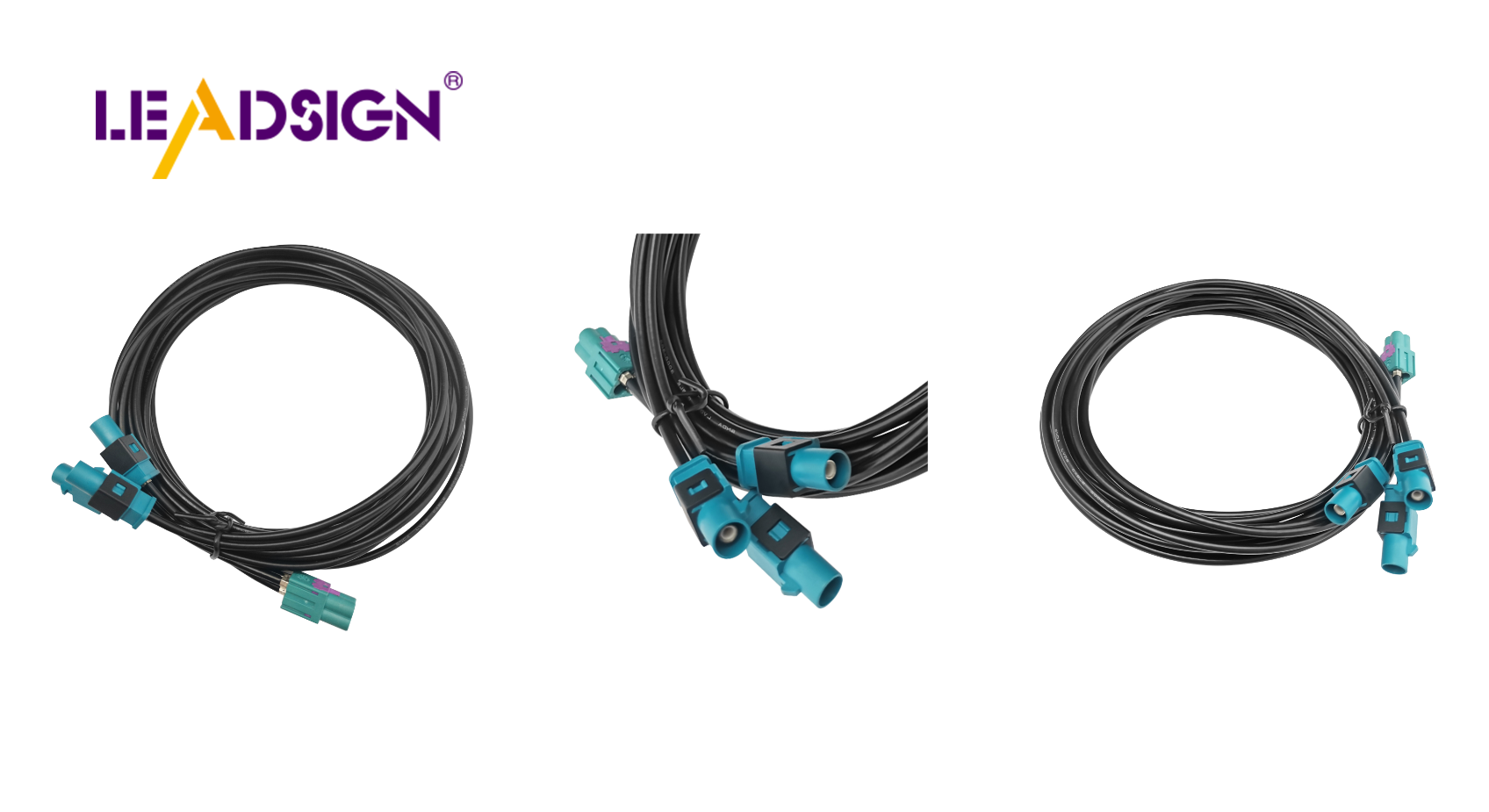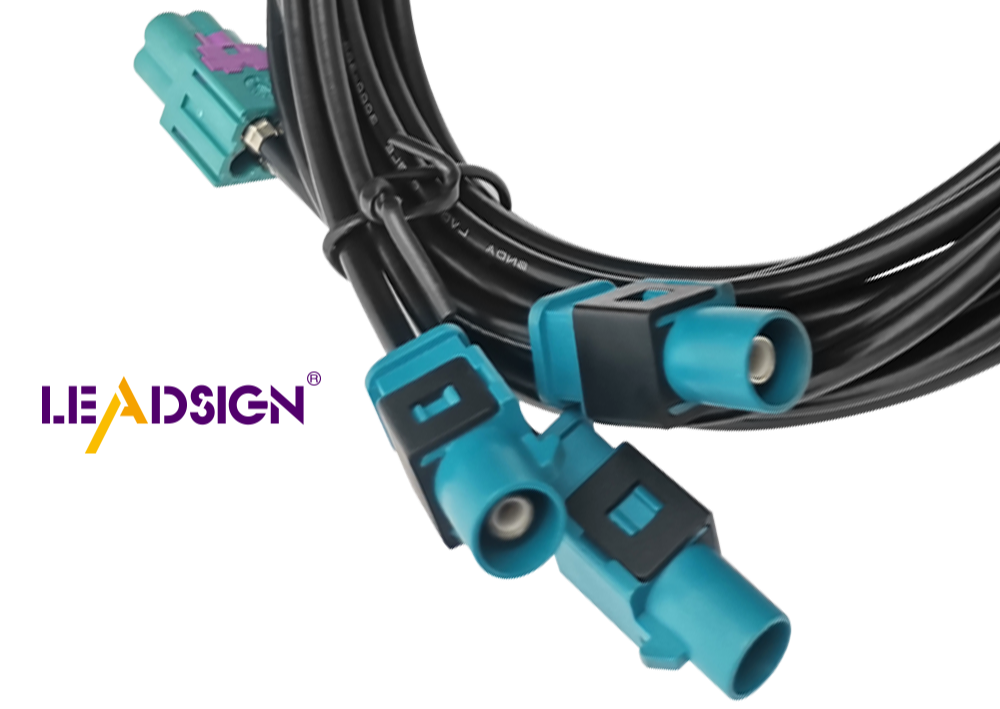Car Wire Connector Types You Should Know About

Understanding automotive electrical connectors types is crucial for car repairs. These connectors are essential components of a vehicle's electrical system, facilitating communication between various parts. As technologies such as driver assistance and entertainment systems advance, the demand for robust connectors increases. Different automotive electrical connectors types cater to specific requirements, enhancing vehicle performance and safety. By learning about these connectors, individuals can ensure their cars operate efficiently and safely.
Types of Car Electrical Connectors
What Are Car Electrical Connectors?
Meaning and Purpose
Car electrical connectors are important parts of a car's system. They link different circuits, helping them work together smoothly. These connectors come in many shapes and sizes for different car needs. From big machines to small lights, they help send signals and power. Car electrical connectors are important parts of a car's system.
Why They Matter in Cars
Connectors are key for keeping good connections in cars. They shield electronics from heat, water, and rust. This keeps them working well for a long time. Connectors stop problems that can mess up a car’s work, so they’re needed for lights, doors, sensors, and brakes.
Common Connector Materials
Plastic Connectors
Plastic connectors are common because they are light and cheap. They resist water and rust well, which is great for wet places. Their design can change to fit different connector types.
Metal Connectors
Metal connectors are strong and last long. They’re best where strength is needed. These connectors handle heat and tough spots well. They often clean themselves and have seals to stay reliable in cars.
Types of Car Wire Connectors

Knowing different car wire connectors is important for fixing cars. These connectors help parts of a car's electrical system talk to each other well. Let's look at some common car wire connectors and what they do.
Blade Connectors
Features and Uses
Blade connectors, also called spade connectors, have a flat metal piece that fits into a slot. They give a strong connection, perfect for cars. Blade connectors are easy to put in and take out, making repairs simple. You can connect them fast without special tools.
Common Applications
Blade connectors link wires to things like switches and fuses in cars. They are used where you need to unplug often, like in lights or dashboards. Their flexibility makes them popular among car wire connector types.
Bullet Connectors
Features and Uses
Bullet connectors look like bullets with a round shape for easy use. They have two parts that snap together tightly. This keeps the connection steady but lets you disconnect quickly if needed. Bullet connectors work well in simple circuits.
Common Applications
Car makers use bullet connectors in sound systems often. Connector Experts say they are easy during fixes or upgrades, great for parts needing regular care. Bullet connectors are also used in lights where quick disconnection helps.
Butt Connectors
Features and Uses
Butt connectors are tube-shaped for joining two wires end-to-end firmly. They crimp wires together for a lasting hold and come in different sizes for various wires. Butt connectors handle shaking and weather well.
Common Applications
Butt connectors splice wires in car systems widely. They’re handy when you need a permanent link, like near engines or under cars. Their strong bond makes them key among car wire connector types.
Pin Connectors
Features and Uses
Pin connectors are important in car electrical systems. They have pins that fit into sockets, making a strong link. These connectors are trusted for handling many wires at once. They often lock to stop them from coming apart by accident, even if there's shaking or movement.
Pin connectors work with different wire sizes and setups. Their design lets you put them in and take them out easily, which is good for when you need to fix or change things often. They are built tough to handle heat, wetness, and dirt.
Common Applications
Pin connectors are used a lot in cars because they last long and can change easily. They're found in tricky wiring systems like engines and power controls. These help send signals and power between parts so the car runs well.
Besides engine uses, pin connectors are also in radios, maps, and driver help techs. They manage lots of links, making them good for connecting many gadgets in a car. By keeping parts connected well, pin connectors help cars work safely and better.
Picking the Best Connector
Things to Think About
Picking the right car wire connector means looking at key things. These help make sure the connector fits what the car needs.
Power Needs
The car's power needs are important for picking connectors. Each one must handle specific power levels. For example, connectors in strong systems, like engines, need tough designs for big power loads. Knowing this helps pick connectors that stop overheating and work well.
Weather Conditions
Weather affects which connectors to use. Car connectors must handle heat, wetness, and shaking. For instance, engine area connectors face high heat and fluids. So, choosing ones with good seals and materials is key for lasting use in tough spots.
Maker Advice
Makers give good tips on picking the right connectors. Their advice can lead to good choices.
Known Brands
Choosing from known brands means getting quality parts. Brands like LEADSIGN have smart solutions like the Mini FAKRA Connector. It’s small but fast for new car techs like driver help systems.
Quality Rules
Following quality rules is crucial when picking connectors. Good ones meet industry rules, working well in different conditions. For example, FFC connectors are thin and fit tight spaces easily with ZIF tech for easy setup and care. Picking standard-meeting connectors ensures they last long and work great.
In short, picking the best car wire connector means knowing power needs, weather issues, and maker tips. By thinking about these things, people can make their cars safer and better.
Knowing different car wire connectors is important for keeping a car's electrical system working. Main types are blade, bullet, butt, and pin connectors. Each type has its own job to help car parts talk to each other well. Picking the right connector is key for the car to work safely and well. Things like how much power is needed and weather conditions matter when choosing. Car systems need strong connectors to work properly. By picking the right ones, people can make their cars last longer and be more reliable.
See Also
An In-Depth Look at Fakra Connectors: Fundamentals, Varieties, and Uses
An Extensive Overview of Fakra Male Connectors
Navigating Ford Fakra Connectors
Exploring FAKRA Connectors: Benefits, Uses, and Setup Suggestions

